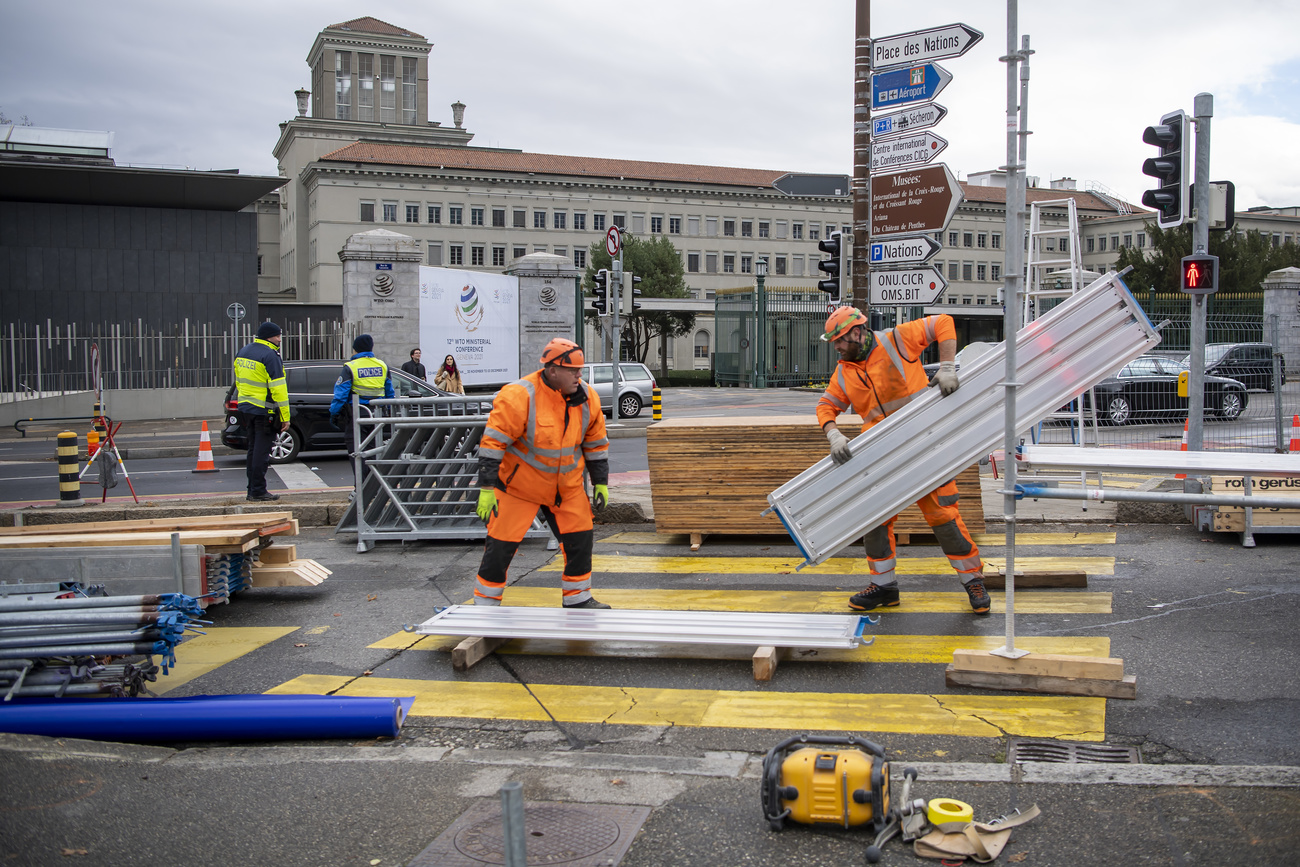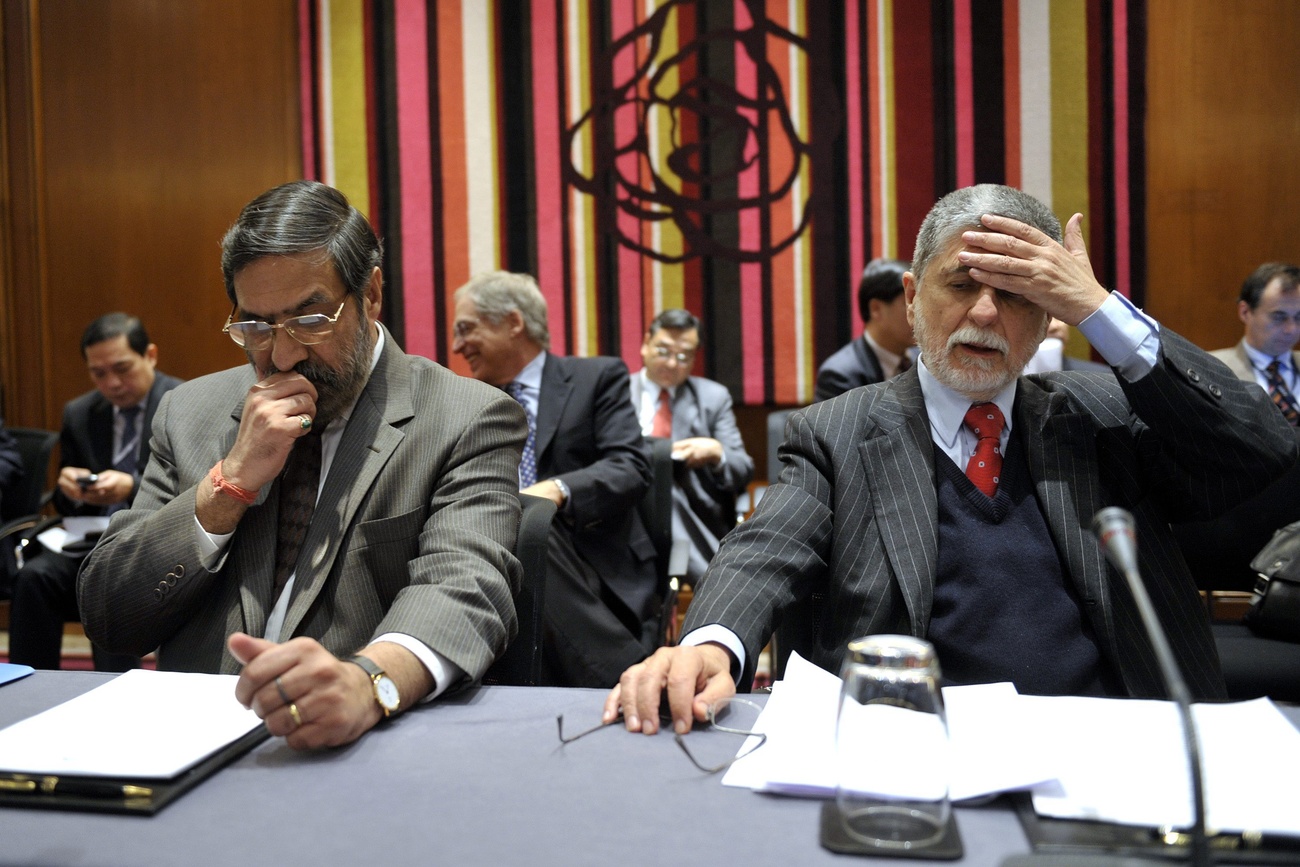
Some quiet relief as Covid aborts the WTO ministerial

For an institution whose members habitually make decisions at the pace of an elderly sloth with chronic sciatica on a work-to-rule protest, the speed with which the World Trade Organization (WTO) postponed its big ministerial meeting was truly phenomenal.
On Friday, a day after news of the Omicron variant spreading, and just a few hours after it became clear the South African and European Union delegations would not be allowed to visit Switzerland, the meeting was put off by unanimous decision of the Geneva-based WTO’s 164 member governments.

Let’s be frank: there was very little chance that even the in-person meeting that had been planned would create many breakthroughs anyway. Strictly limited delegation sizes and social-distancing rules meant the ministerial wouldn’t feature the classic all-night pressure-cooker negotiating sessions, shouts, tears, no one leaves this room till we all agree, the whole theatrical thing, that can sometimes produce movement. Today’s main piece looks at who might secretly be feeling some relief (most of the big players we reckon) and who might not.
A reckoning postponed
The people you really have to feel for are the WTO’s staff and its director-general Ngozi Okonjo-Iweala. It’s a small organisation without many powers of its own. Convening is largely what it does. It’s been trying hard to have an impact on the world trading system during the Covid pandemic, and now a ministerial originally scheduled for June 2020 is indefinitely pushed back again.
We’re less convinced by the displays of grief from the big member countries. We suspect some are quite relieved because it means that their spin and hypocrisy is no longer going to be exposed. And for the one or two governments that we reckon will be disappointed, it’s probably not for very principled reasons.
Those two are South Africa and, particularly, India. As we’ve often pointed out, in issue after issue the two of them have formed an awkward squad in the WTO that generally prevents consensus forming.
India and South Africa
On the biggest two issues, fisheries subsidies and the intellectual property waiver for Covid treatments, India has stuck fast to hardline positions that have zero chance of reaching consensus. On fisheries subsidies, Delhi has demanded improbably sweeping “special and differential treatment” (SDT) exceptions available to developing countries that would have punched a big hole in the new rule book. On Covid treatments, its joint waiver proposal with South Africa would have abolished IP protection over an impossibly large swath of medical products, and despite occasional noises of moderation from the South Africans the two have collectively shown no real sign of compromise.

More
World Trade Organization: a long history
So why would India have wanted the ministerial to go ahead? So it could kill it, obviously. Signing trade deals is politically toxic in India — the last substantive one was the deal that created the WTO in 1994 — and knifing them in public goes down well. Kamal Nath, the India trade minister who did more than anyone else to crash the ministerial in 2008 where the Doha round died, used to say that killing Doha would make him so popular with the voters he could win his home state without bothering to campaign.
To be fair, India’s supposedly liberalising Prime Minister Narendra Modi has done some deregulation of customs procedures and so on, but even he won’t sign substantive formal trade agreements. The Regional Comprehensive Economic Partnership in the Asia-Pacific was an obvious place to start — it wouldn’t have required much liberalisation and India could have been a counterweight to China. But he pulled out.
Some people still seem to think India makes unrealistic demands as a tactic to get negotiating leverage. For a long time we’ve taken the view that no, India simply wants to kill deals. A former adviser to Modi became ambassador to the WTO last year and by all accounts is uncompromising and combative. (The Indian mission in Geneva has declined repeated requests for interviews.)
One deeply unfortunate consequence of Delhi’s oppositionalism is to allow other countries to hide their weaknesses and failures. China, being a huge and fast-growing middle-income economy, should really agree to renounce its (self-defining) special and differential status, as have more progressive emerging markets like Brazil. But India is so vocal about keeping SDT that China can fall in behind India without having to make the argument itself.
EU and US
On fisheries, India’s demands for improbably large carve-outs draw attention away from the EU’s problems with persuading some of its member states, notably France and Spain, to eliminate fuel subsidies for their long-distance fishing fleets.
To be fair to the EU, it has put a lot of effort into keeping the WTO system on the road and won’t be filled with unalloyed joy by the ministerial’s postponement. True, on IP waivers, the EU wasn’t looking forward to spending a week being beaten up by health campaigners blaming them for not supporting the maximalist India-South Africa proposal. The real skulker in the shadows on that issue is the US.
The rhetorical commitment to a vaccines waiver that Katherine Tai, the US trade representative, made back in May has never been tested by India and South Africa submitting a politically realistic compromise. The US, which would face serious heat from its pharmaceutical industry if it ever agreed to a substantial waiver, has simply sat there in meetings telling other countries to make a deal.
This is cynical stuff. The Biden administration has done a number on its domestic health campaigners, who are totally convinced the US is gung-ho for a full waiver and it’s those insufferable Europeans and particularly those awful Germans standing in the way. One particularly entertaining element of this is the campaigners’ belief that Emmanuel Macron is keen on a waiver but Germany is blocking him. If you believe that, we have a nuclear submarine fleet to sell you: French officials assure us they fully support the EU’s negotiating position.
So there we are. It was obviously the right decision to cancel, but even though the ministerial wasn’t likely to agree much it’s a shame the big WTO members managed to evade an opportunity for scrutiny. Whatever date the ministerial gets rearranged to, our bet is we’ll be back with the same set of problems and the same countries saying the same things. We’ll keep an eye out for progress and make sure you’re updated, but we don’t imagine that’s going to be happening too often.
Copyright The Financial Times Limited 2021

In compliance with the JTI standards
More: SWI swissinfo.ch certified by the Journalism Trust Initiative




























Join the conversation!